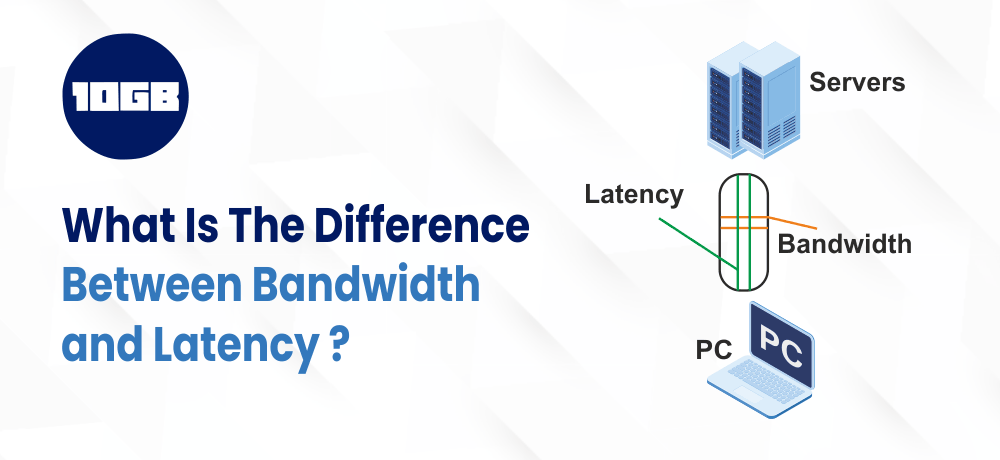Bandwidth and latency are the two key components that play a considerable role to derive how fast and responsive is your internet connection.
To know the difference between the components, you need to first understand what bandwidth and latency are.
Table of Contents
Bandwidth Vs Latency
What is Bandwidth?
Bandwidth is the amount of data transferred in a certain time period. Here it indicates the maximum capacity of an internet connection and not the actual speed. For instance, if your internet package is of 50Mbps then this signifies that the maximum capacity of your city is 50Mbps.
Few people link a high bandwidth with quicker internet and less time for data to be transferred. However, your internet speed is possible to be less than your bandwidth because of network clogging and other external factors.
Suggested For Further Reading
What is Latency?
Unlike the bandwidth, latency, or ping is the time needed for the data to travel from one location to another via wireless or wired connections. Whenever a data transfer happens, the data packets are sent from one location to another with the help of wired or wireless connections. So, here the time needed for data to traverse from one place to another is referred to as network latency.
Usually, lower latency is better as the delay between the action and the result will be lower. High latency is while it takes longer to see the results. Latency is measured in milliseconds as the whole process of sending and receiving signals occurs pretty fast.
Ping or ping rate is just another way of describing latency. The ping is the request you are sending to the server and the ping rate is the time taken by the request to transfer and come back with an output.
The bandwidth and latency, both are crucial for a website’s SEO. As even a minimal delay in the data transfer can lead to failure in conversion rate and negatively affect the efficiency of the overall marketing of the website.
Suggested For Further Reading
As we have seen what bandwidth and latency are, let’s see the difference between bandwidth and latency.
How Bandwidth and Latency Affect You?
Both the bandwidth and latency are crucial for internet speed. If you need high performance then you need to strive for high bandwidth and low latency.
Ideally, if you have a higher bandwidth, then you can transmit more data across a certain time period. However, this translates in several ways and depends on the activities that you do on the internet. So, let’s take some use cases and explain to you better.
In case, you are listening to music on Deezer or watching a show or movie on Amazon Prime, the most notable factor that affects your experience is the bandwidth. Lower bandwidth in this case could result in poor video and audio quality or buffering interruptions.
However, on the contrary, while you are watching a live stream, the low latency can affect the time between what you do and what viewers see. If your audience viewing the live stream responds late to something you did before, it is more possible due to the low latency.
Now, as remote working or work from home is becoming quite common, the need for video conferences are increasing. And for optimal video conferencing, you require both exceptional bandwidth and latency. Low latency avoids delays and high bandwidth helps in the quality of audio and video.
Conclusion
In this article, we gave you some instances where bandwidth and latency are important, however, there is a countless application that scales up with the use of servers. The internet is enormous hence, it is necessary to have a good connection via high bandwidth and low latency.
At 10GB Hosting, you can opt for Cheap Linux Hosting plans with unmetered bandwidth. You get the liberty of using bandwidth as much as your site needs.
